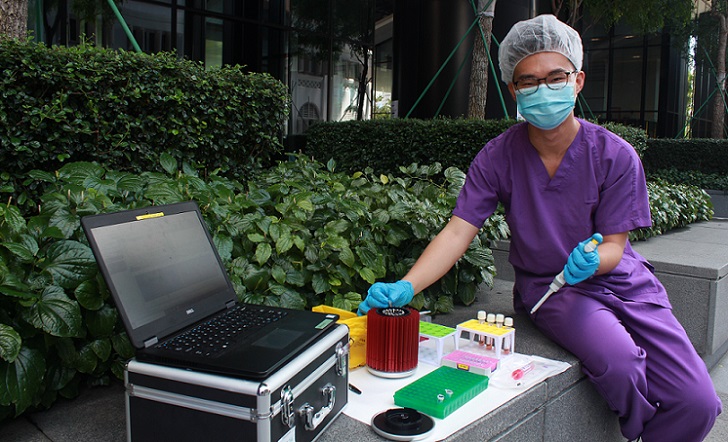A new COVID-19 testing method said to have the ability to cut down waiting time to 36 minutes has been developed by the medical students of Nanyang Technological University of Singapore.
The diagnostic test is said to improve the speed, handling time and cost, yielding results in just a quarter of the time usually required.
“Their new approach could enable the wider adoption of COVID-19 testing for diagnosis in academic or research laboratories, and allow for screening and research especially in countries and regions with limited laboratory capabilities,” NTU said.
The portable test kit is set to be used for research in countries with limited laboratory capabilities or as a screening tool for the local community.
NTU said that existing tests take up a few hours and consist of tedious processes that could only be performed by highly trained personnel. Automated solutions also cost hundreds of thousands of dollars and require specialized facilities.
The portable test combines the tedious steps involved and eliminates the time-consuming and costly RNA purification process that separates RNA, also known as ribonucleic acid, from other components in the biological sample. RNA can be extracted from a person through nasal swabs and such tests are done to identify whether a person is actively infected with COVID-19.
The test can be used to detect dengue and other viruses as well.
“The method developed by NTU [Lee Kong Chian School of Medicine] combines many of these steps and allows direct testing on the crude patient sample, cutting down the turnaround time from sample-to-result, and removing the need for RNA purification chemicals,” NTU said,
Further testing still needs to be done to deploy them in community healthcare settings.
“We need to determine the actual utility and benefits in a real-world setting, and to understand if there are any trade-offs. When one bottleneck is removed, other challenges may emerge – like ensuring quality control, or reducing manual errors,” research leader Associate Professor Eric Yap said.
Singapore has reported a total of 50,369 confirmed cases with 27 deaths since the start of the outbreak in January.
Other stories you should check out:
Resorts World Sentosa announces layoffs due to COVID-19
Singapore’s GDP plunges 41.2% from previous quarter





Reader Interactions